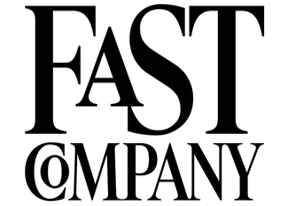These 7 social entrepreneurs are working to strengthen civic engagement
April 30, 2019
New Profit, a venture philanthropy organization that funds social entrepreneurs, recognized this issue. Through a new grant program specifically for organizations addressing democracy issues called Civic Lab, New Profit selected seven nonprofits trying to build trust across communities and reengage people in democratic processes.

Democracy in the U.S., you may have noticed, has found itself on shaky ground. According to polling from last year, less than half of people in the country feel the current political system is effective at upholding their rights, and few people believe that elected officials are adequately held accountable for misconduct and failings.
This is not a great situation, and a number of organizations and nonprofits have recently launched in an attempt to address the root causes of the U.S.’s democracy dilemma. From voter turnout to government reform efforts to recruiting new and diverse leadership for local politics, activists and leaders are building new avenues out of some of the most pressing issues in the U.S. The problem, though, is that because nonprofits are supposed to cut a wide berth around partisan politics, they often struggle to get philanthropic funding if their projects touch on the political.
New Profit, a venture philanthropy organization that funds social entrepreneurs, recognized this issue. Through a new grant program specifically for organizations addressing democracy issues called Civic Lab, New Profit selected seven nonprofits trying to build trust across communities and reengage people in democratic processes. “There’s a lot of money being poured into partisan political engagement or activism, but what does it look like to do that in a nonpartisan way?” says Yordanos Eyoel, a partner at New Profit who is overseeing Civic Lab. “We want to build civic trust and a strong civic culture in the country, and doing that requires building relationships across politics, demographics, and geography.”
Seven democracy entrepreneurs that New Profit selected from a pool of around 150 potential candidates have been identified by the nonprofit. Each will receive a grant of $50,000, and a year of support from New Profit to grow the reach and impact of their organization. The Civic Lab cohort includes:
Sarah Audelo, through the Alliance for Youth Organizing, works with a number of youth-led advocacy efforts across the country to grow their impact. They engage in youth voter-registration efforts, and push for progressive policies like higher minimum wages and police reform.
Emily Cherniack‘s New Politics Academy encourages and trains citizens with a history of service–like veterans and former Peace Corps members–to run for office, the idea being that the commitment to service could bridge partisan lines.
Katie Fahey‘s new organization, The People, aims to build a nonpartisan coalition of Americans interested in reforming government and ending questionable practices like gerrymandering and voter suppression.
Rev. Gregory Holston founded POWER, which currently only extends across parts of Pennsylvania, but unites faith-based communities to advocate for criminal justice reform, improved educational opportunities, healthcare, and more. The nonprofit takes the approach of translating the messages that people try to live out through religion to political action.
Steven Olikara leads the Millennial Action Project, which brings together young people who are interested in breaking down partisan divides and pushing for issues that will affect their futures. So far, they’ve advanced legislation that supports entrepreneurship, skills training, and technological advancement by working with elected officials across the aisle.
Darrell Scott‘s PushBlack sends stories and reported articles about black history to around 4 million subscribers via texts, and connects these historical lessons with the need for mobilizing on issues like voter registration now.
Kashif Shaikh directs the Pillars Fund, which invests in Muslim American leaders and efforts to grow civic engagement and communication across Muslim communities in the U.S.
Each of the seven grantees connects with a different motivating factor for civic engagement. For the youth-led organizations, it’s about working together to secure a stable future for themselves in the U.S. For POWER, it’s about identifying aims that already motivate people through religion, like community health and justice, and trying to bring that same human-centered ethos to politics. For PushBlack, it’s about uniting people through a sense of shared history into action. “We’re on a quest to build trusted relationships with black folks,” says Scott. “It’s only through those trusted relationships that we can mobilize people to action.” PushBlack uses media and information-sharing on black history to build up that sense of common ground; storytelling around the history of black disenfranchisement, for instance, fueled the organization’s voter registration push last fall.
Even though they have different aims, the Civic Lab cohort organizations are all invested in building up a sense of cooperation and mutual goals, which leads toward what Eyoel says is noticeably lacking from the U.S. civic landscape today: trust. The aim of Civic Lab is to help the grantee organization reach more people, but also for the nonprofit leaders themselves to begin communicating and working together to find common ground.
These 7 social entrepreneurs are working to strengthen civic engagement
Democracy in the U.S., you may have noticed, has found itself on shaky ground. According to polling from last year, less than half of people in the country feel the current political system is effective at upholding their rights, and few people believe that elected officials are adequately held accountable for misconduct and failings.






Join 1,900+ BIPARTISAN LEADERS NATIONWIDE
Be a part of a network of lawmakers committed to governing effectively, passing more representative public policy, and increasing public trust in democracy.